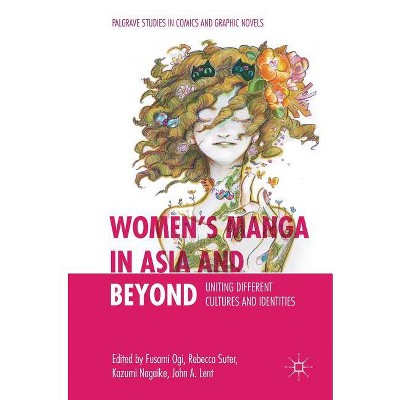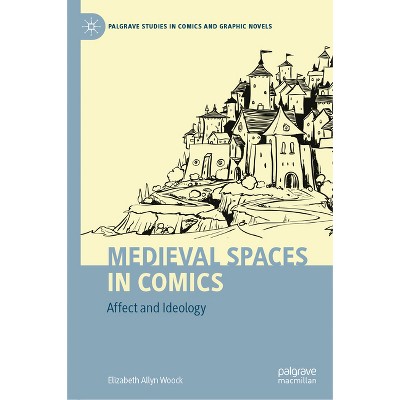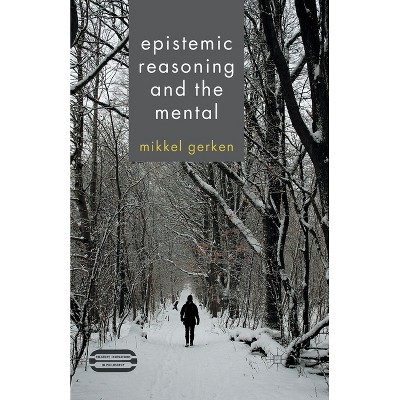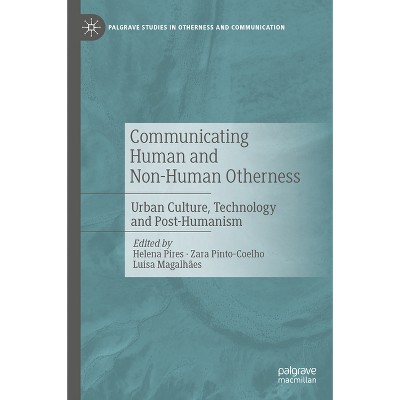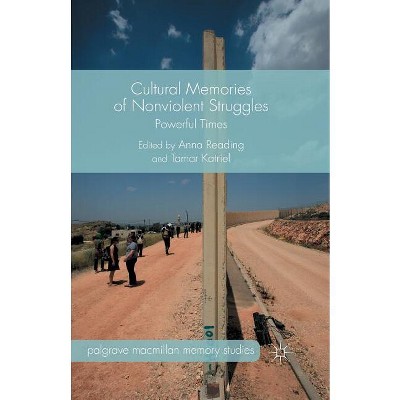Comics and Women's Mental Health - (Palgrave Studies in Comics and Graphic Novels) by Jeanne-Marie Viljoen (Hardcover)

About this item
Highlights
- This book discusses five recent, hand-drawn, comics memoirs of women's mental health experiences, not easily captured in words alone.
- About the Author: Jeanne-Marie Viljoen is a scholar of literary trauma studies at Adelaide University, Australia, where her focus is on contemporary literature and visual narratives in decolonial contexts of violence.
- 142 Pages
- Social Science, Media Studies
- Series Name: Palgrave Studies in Comics and Graphic Novels
Description
Book Synopsis
This book discusses five recent, hand-drawn, comics memoirs of women's mental health experiences, not easily captured in words alone. It deals with a range of mental health experiences that are not simply diagnoseable mental disorders, and do not always stem from visible physical conditions (heavy feelings, loneliness, postpartum depression, grief, schizophrenia and suicide). Yet, by also considering the formal qualities of these stories, it is able to focus on embodied aspects of experience, inflecting these with perspectives from a range of women of various ages, sexualities, genders, races and cultures. This book demonstrates how comics are an effective, interdisciplinary means of communicating women's mental health and wellbeing.
From the Back Cover
This book discusses five recent, hand-drawn, comics memoirs of women's mental health experiences, not easily captured in words alone. It deals with a range of mental health experiences that are not simply diagnoseable mental disorders, and do not always stem from visible physical conditions (heavy feelings, loneliness, postpartum depression, grief, schizophrenia and suicide). Yet, by also considering the formal qualities of these stories, it is able to focus on embodied aspects of experience, inflecting these with perspectives from a range of women of various ages, sexualities, genders, races and cultures. This book demonstrates how comics are an effective, interdisciplinary means of communicating women's mental health and wellbeing.
Jeanne-Marie Viljoen is a scholar of literary trauma studies at Adelaide University, Australia, where her focus is on contemporary literature and visual narratives in decolonial contexts of violence. Her international training and lived experience of contested places (Cyprus, South Africa and Australia) continue to drive her engagement with arts as an active means of working with marginalization and its effects on social cohesion and collective wellbeing.
Endorsements:
"This book contributes a unique, valuable approach to women's mental health for academics, health professionals and carers...and to bodies of work in the medical humanities that destigmatises mental health and challenges entrenched orthodox medicalised approaches, which historically have harmed women."
-- Professor Lia Bryant, sociologist of gender and wellbeing in rural communities, University of South Australia, Australia
"A thought-provoking book about how graphic medicine comics can offer varied perspectives on mental health challenges that words alone cannot, it discusses clear and powerful examples of mental struggles. Highly recommended."
-- David Rogers, GP and Co-Program Director, Bristol Medical School, UK
"The engagement of this book with the interlocution of mental disorder and gender provides a space for telling of stories that might not be told and is of great importance to comics as graphic medicine as well as to the humanities in general."
-- Allyson Kreuiter, Professor of Literary Studies at the University of South Africa, South Africa
About the Author
Jeanne-Marie Viljoen is a scholar of literary trauma studies at Adelaide University, Australia, where her focus is on contemporary literature and visual narratives in decolonial contexts of violence. Her international training and lived experience of contested places (Cyprus, South Africa and Australia) continue to drive her engagement with arts as an active means of working with marginalization and its effects on social cohesion and collective wellbeing.





